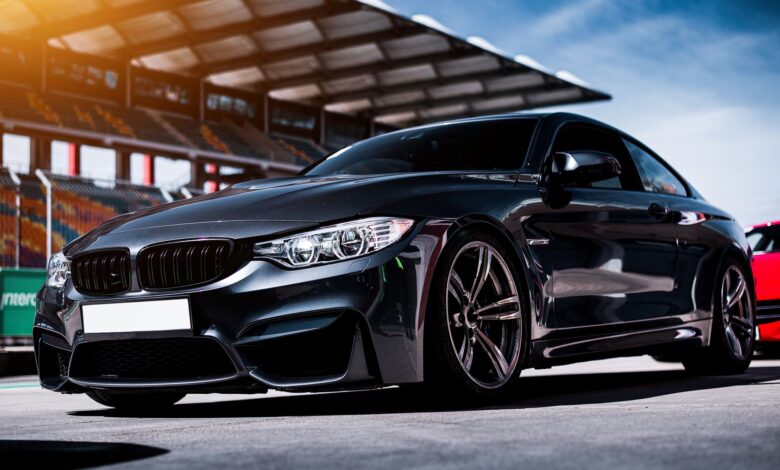How Does BMW Tuning Work?

Car tuning is an art that combines science, engineering, and a passion for performance. It’s about enhancing the vehicle’s power, efficiency, and handling. This article explores aspects of BMW tuning, offering insights for novices and experts.
Overview of BMW Engine Technology
BMW engines are known for their performance and efficiency. The brand’s innovative use of turbochargers, direct-injection technology, and variable valve timing gives them an edge over other manufacturers. BMW engineers work to improve the engine design to extract more power while increasing fuel economy.
Tuning a BMW engine involves tweaking the engine’s settings, like fuel injection and ignition timing. This allows the driver to increase power and torque and improve fuel economy. Tuning can even reduce emissions and can help with maintenance.
Tuning Methods and Techniques
BMW tuning methods and techniques range from simple software tweaking for optimal performance to intricate hardware modifications such as installing high-flow air intake and exhaust systems. Enhancing turbochargers and upgrading the fuel injection system are other ways to achieve maximum power and efficiency.
Stage Tuning
Stage tuning involves a gradual increase in power output through minor engine modifications. Stages 1, 2, and 3 are the three engine tuning levels for BMWs. Stage 1 involves minor modifications to increase power output without compromising reliability or fuel economy. This includes swapping out components like intake systems and exhausts.
Stage 2 involves upgrading the turbocharger to a larger, more efficient model and installing a bigger intercooler. The intercooler cools the charged air from the turbo, increasing its density and making more oxygen available for combustion. The fuel injection system is often upgraded to match the increased air supply, maintaining a perfect air-to-fuel ratio. Other potential changes might include larger injectors, high-flow fuel pumps, and custom exhaust systems.
Stage 3 is the most aggressive engine tuning, often venturing into professional motorsports. The modifications made in this stage are designed to extract the maximum possible performance from the engine. This could involve fitting a bigger, race-grade turbocharger or switching to a twin-turbo setup. It can involve upgrading the fuel system with high-performance components and reprogramming the ECU to make the most of these upgrades. Stage 3 tuning often involves internal engine modifications like installing high-performance pistons, rods, and camshafts.
Chip Tuning and Remapping
Chip tuning and remapping involve modifying the engine’s computer (ECU) to improve power output. By changing the settings of the ECU, fine-tuning can be done to get more power without installing additional components. This method is popular among tuners because it offers a range of performance benefits, including improved throttle response, better fuel economy, and increased power output. Be cautious when performing this process, as it can have serious consequences if done incorrectly. Professionals should always be consulted before attempting chip tuning or remapping.
Aftermarket Performance Parts
Any tuning project requires aftermarket performance parts. These parts can increase power output from turbos and intercoolers to intakes and exhausts. They also allow the tuner to customize their vehicle with unique designs and materials, allowing them to create a unique look. Components should be correctly installed and tuned, as incorrect installation can cause serious damage to the engine.
Choose the right parts for your BMW model for a successful tuning project. Not all BMW models can handle the same performance parts, so know which components are compatible with your vehicle. Some engines may require different turbos or intakes than others. Consider factors like how much power you want and whether you want to prioritize fuel economy or performance. The right parts will help you get the most out of your tuning project.
Custom Tuning and Dyno Testing
Custom tuning involves an experienced tuner using sophisticated diagnostics equipment to adjust the engine’s parameters precisely. This can improve driveability, power, and fuel economy. Dyno testing measures performance gains and checks for potential problems that could occur during custom tuning. It allows the tuner to monitor changes in engine parameters, verifying that everything works correctly.
Tuned engines are not all the same, and each car must be tuned according to its needs. Factors like the age of the engine, mileage, type of fuel used, and modifications made to the car must be considered when tuning a BMW. Performance gains may be minimal or nonexistent without tailored tuning for individual cars.
Unlock Your Car’s Potential With BMW Tuning
BMW tuning is a complex process that involves understanding the engine’s needs and installing the right components for optimal performance. It also requires fine-tuning settings for maximum power output while still maintaining reliability and fuel economy. Aftermarket parts, chip tuning, remapping, and custom tuning all help to reach peak performance. Responsible tuning practices must be followed to prevent engine damage. Find a reliable BMW tuning professional for any system upgrades or enhancements.



